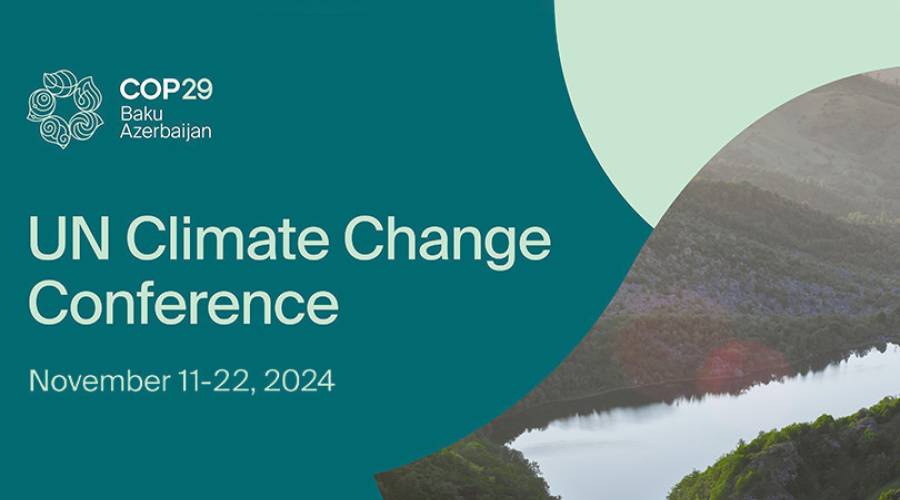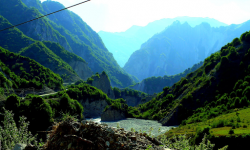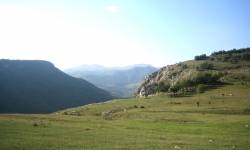
Climate Change: Emerging Challenges and Perspectives on Combating Them
The 2024 COP Baku Summit brings global leaders, policymakers, scientists, and activists together to confront one of humanity's most pressing challenges: climate change. As climate impacts intensify, this pivotal event seeks to address emerging challenges and explore innovative strategies to mitigate and adapt to the shifting environmental landscape.
Insights from the 2024 COP Baku Summit
The 2024 COP Baku Summit brings global leaders, policymakers, scientists, and activists together to confront one of humanity's most pressing challenges: climate change. As climate impacts intensify, this pivotal event seeks to address emerging challenges and explore innovative strategies to mitigate and adapt to the shifting environmental landscape.
Emerging Challenges in Climate Change
Rising Global Temperatures:
With the planet on course for warming beyond 1.5°C, extreme weather events are becoming more frequent and severe. This exacerbates vulnerabilities in communities and ecosystems worldwide.
Rapid Urbanization:
Urban centers are expanding, often without sustainable infrastructure. This leads to increased emissions, energy demands, and challenges in waste management, compounding environmental pressures.
Resource Scarcity and Ecosystem Degradation:
Overexploitation of natural resources is causing biodiversity loss, water shortages, and deforestation, impacting food security and the health of ecosystems critical for carbon sequestration.
Climate Refugees:
Rising sea levels, desertification, and extreme weather are displacing millions, creating complex socio-political and humanitarian crises.
Economic and Policy Gaps:
Many nations struggle to balance economic growth with sustainability, and the lack of cohesive global policies hinders coordinated efforts to address climate change.
Perspectives and Ways to Combat Climate Change
Global Collaboration and Policy Innovation:
- Strengthen international agreements, ensuring accountability for emission reduction targets.
- Encourage collaboration between developed and developing nations, offering financial and technological support to the most vulnerable regions.
Green Energy Transition:
- Invest in renewable energy sources such as solar, wind, and hydropower to reduce dependency on fossil fuels.
- Foster innovation in energy storage and efficiency to accelerate the adoption of clean technologies.
Nature-Based Solutions:
- Scale up afforestation, reforestation, and wetland restoration efforts to enhance carbon sinks.
- Protect biodiversity hotspots and integrate ecosystem-based approaches into climate adaptation plans.
Resilient Urban Development:
- Design smart cities with sustainable transportation, energy-efficient buildings, and robust waste management systems.
- Promote green infrastructure, such as urban forests and vertical gardens, to reduce urban heat and improve air quality.
Community Engagement and Education:
- Empower local communities with the knowledge and resources to adopt sustainable practices.
- Integrate climate education into curricula to cultivate a generation of informed and proactive citizens.
Technological Innovation:
- Leverage AI, IoT, and big data for predictive modeling, improving disaster preparedness and resource management.
- Explore emerging solutions like carbon capture, utilization, and storage (CCUS) technologies to offset emissions.
Baku's Role in Shaping the Future
As the host city of the 2024 COP Summit, Baku symbolizes the bridging of global cooperation and regional leadership in addressing climate challenges. Azerbaijan's strategic investments in renewable energy, cross-border collaborations, and commitment to the Paris Agreement underscore its role as a key player in global climate governance.
This summit is not just a forum for discussion—it’s a call to action. By uniting diverse perspectives and fostering actionable solutions, the 2024 COP Baku Summit has the potential to redefine how the world approaches climate resilience, adaptation, and mitigation.
Together, we can combat the greatest challenge of our time and chart a sustainable path for future generations.






